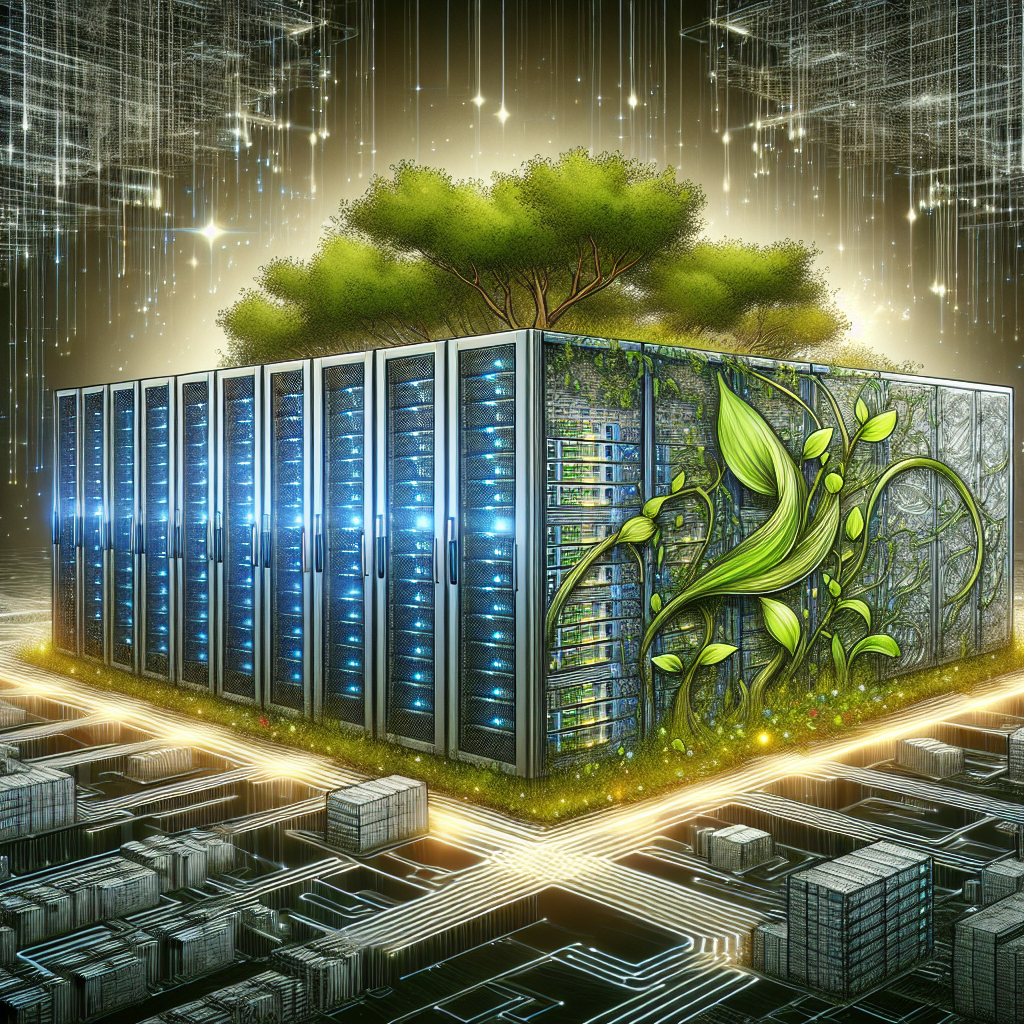As the world becomes increasingly reliant on technology, the demand for data centers – facilities that house computer systems and associated components – has been steadily rising. These data centers are crucial for storing, processing, and managing the vast amounts of data generated by our digital activities. However, the environmental impact of data centers is a growing concern as they consume large amounts of energy and resources.
According to a report by the International Energy Agency, data centers account for about 1% of global electricity consumption – a figure that is expected to double by 2021. This massive energy consumption not only contributes to carbon emissions and climate change, but also puts a strain on local power grids and water resources.
One of the main reasons for the high energy consumption of data centers is the need to keep the servers cool. Data centers generate a significant amount of heat, which must be constantly dissipated to prevent equipment malfunctions. This cooling process often requires large amounts of electricity, leading to increased energy consumption and carbon emissions.
In addition to energy consumption, data centers also have a significant impact on water resources. Data centers require large amounts of water for cooling purposes, which can put a strain on local water sources and ecosystems. In areas with water scarcity, the high water consumption of data centers can exacerbate existing water stress and pose a threat to local communities and wildlife.
Given the environmental impact of data centers, there is a growing push for greater sustainability in the industry. Many companies are investing in renewable energy sources such as solar and wind power to reduce their carbon footprint. Additionally, data centers are increasingly adopting energy-efficient technologies such as liquid cooling and server virtualization to minimize energy consumption.
Furthermore, some data centers are exploring innovative solutions such as using recycled water for cooling or locating facilities in colder climates to take advantage of natural cooling processes. These measures not only reduce the environmental impact of data centers, but also help companies save on energy costs in the long run.
In conclusion, the environmental impact of data centers is a critical issue that cannot be ignored. As the demand for data continues to grow, it is imperative that the industry takes proactive steps to minimize its carbon footprint and reduce its impact on water resources. By investing in sustainable practices and technologies, data centers can play a key role in mitigating climate change and promoting a more environmentally friendly future.


Leave a Reply